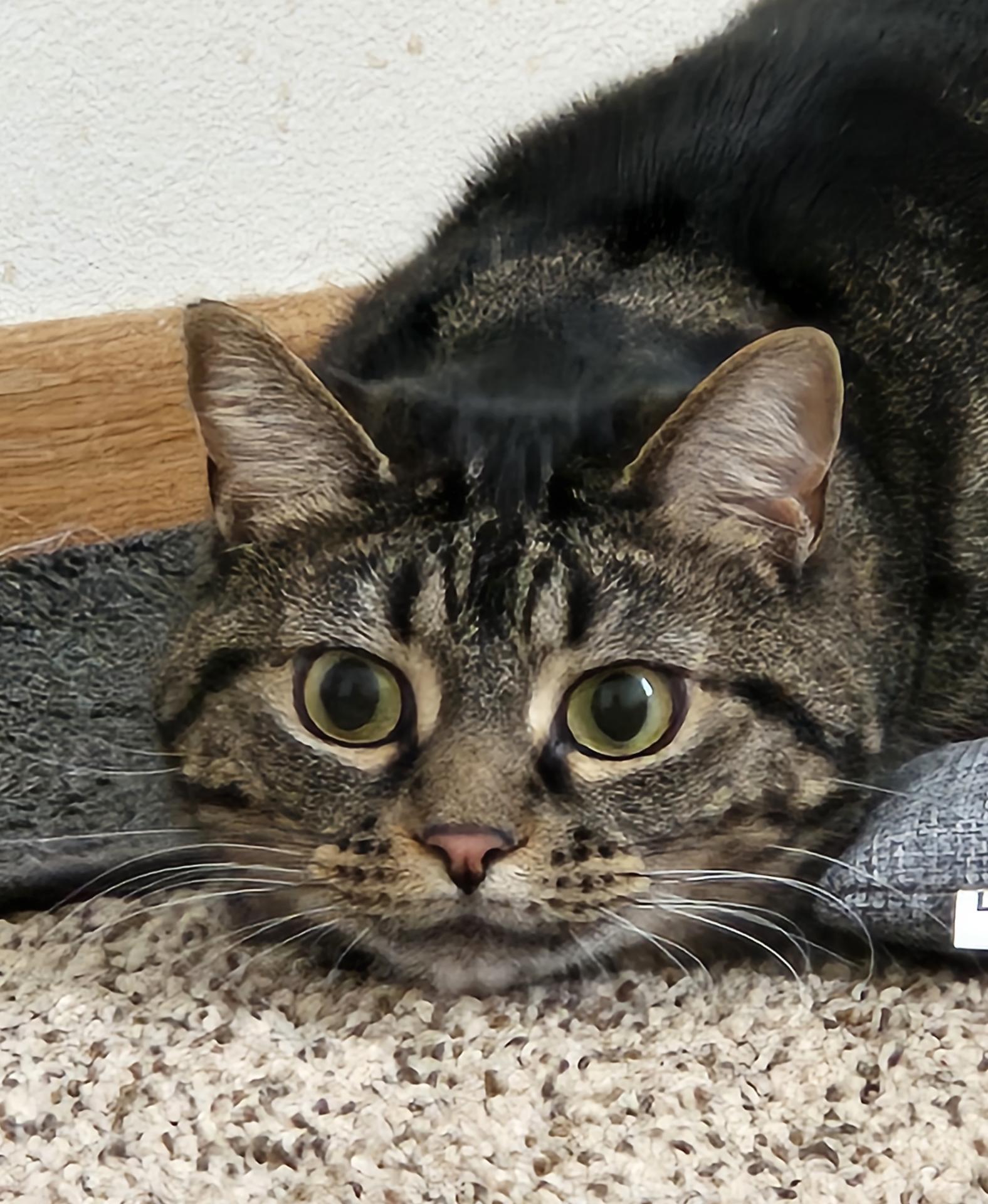What You Need To Know About Cat Surgery
At The Hometown Veterinarian, we understand how important surgery is to the health and well-being of a cat. We want you to be informed before your cat has surgery.
Is a veterinarian's exam important prior to my cat's surgery?
Absolutely! An examination is a veterinarian's best tool to evaluate the health of a cat. We will need to examine your cat prior to surgery and we will do it again immediately before surgery.
Will my cat need lab work done prior to having surgery?
Yes! We perform lab work before every surgery. This is critical because cats cannot talk and tell us things such as feeling light-headed before or after eating or that sometimes scratches take a long time to stop bleeding. We would have no way of knowing of many inside problems that could affect the safety of surgery. We want to make sure that the surgery will be as safe as possible. It is not uncommon to change a surgical plan because of findings on a cat's bloodwork.
About 1 in 9 young cats, 1 in 5 middle-aged cats, and 1 in 3 senior cats will have clinically relevant findings on their lab work. These abnormalities often require us to alter our anesthesia plan to help ensure a safe procedure. Not knowing about potential problems just carries too much risk.
While other facilities may consider lab work to be an "add on," your cat's safety is just too important to us to cut corners and ignore the critical importance of pre-anesthetic labs.
How effective is surgery?
In general, surgery is an effective treatment for most cats. Our veterinarians are extremely skilled in surgery. Because every condition requiring surgery is different be sure to speak with the veterinarian performing surgery so that you fully understand the expected outcome.
Is laser surgery important?
Laser surgery is our standard of care. Surgical laser is extremely precise and allows much less tissue trauma. Further, laser surgeries bleed less (if at all), are less painful, and heal with less scarring. There is no downside to laser surgery. Nobody would want their cat to hurt more, so why would anyone not use laser?
Does my cat need to be fasted before surgery?
In nearly all cases, your cat should not be fed the morning of surgery. Water is usually fine until leaving home for our hospital. If your cat has any unique medical issues that might alter fasting recommendations, please ask.
My cat takes medications. Should I give them before surgery?
This question should be directed to one of our veterinarians before surgery on a case-by-case basis. Many medications may be fine to give but some could create anesthesia issues. Be sure to bring any medications that your cat would normally need with you on the day of surgery.
Will my cat be monitored while under anesthesia?
While a cat is undergowing surgery, a veterinary assistant will working closely with the veterinarian to monitor the vitals through electronic monitors as well as direct supervision. There will never be a moment that your cat is not being closely monitored from the time of anesthesia until being fully awake. There is always a minimum of two people involved at all stages of your cat's surgery and anesthesia recovery.
Are IV fluids necessary during for my cat during surgery?
Yes, IV fluids are critically important for any cat under anesthesia. Maintaining proper hydration is critical. Dehydration and anesthesia do not mix well! Studies show that up to 1 out of every 50 animal patients undergoing anesthesia will suffer kidney disfunction after surgery. When IV fluids are appropriately given, this risk is all but eliminated. This is because cats blood pressure often drops during anesthesia. When IV fluids are being given during surgery, we can easily maintain a healthy blood pressure throughout surgery by adjusting our fluid rates. It is very difficult, if not impossible, to place an IV catheter in an animal whose blood pressure has dropped too low. This safety precaution alone clearly shows the necessity of IV fluids for your cat. Further, having an IV in place allows veterinarians to easily administer critical medications if any issues arise.
When can my cat eat after surgery?
With the excitement of travel and anesthesia, many cats can have an upset stomach. Typically following surgery, we advise allowing a cat to relax at home for at least an hour before offering a small meal.
How long will my cat need to recover after having surgery?
Every cat is different and every surgery is different. Many less-invasive surgeries many only require a few days of rest but major orthopedic procedures could requogire several months of recovery. Our veterinarians will give you full instructions to help your cat recover.
What do I need to know about taking care of my cat after surgery?
Again, every cat and surgery are different but some good general guidelines to know about are:
- Keep things calm and quiet. When your cat gets home, resting will likely be the order of the day.
- If your cat normally goes outdoors, please keep her inside until fully recovered.
- The environment should be clean and free of possible sources of injury. We don't want a new incision exposed to dirt and grime nor do we want a cat to snag a surgery site on any sharp objects.
Will my cat need pain medication?
Pain relief is absolutely critical to successful recovery from surgery. Pain relief should never be considered optional. Cats that hurt do not heal. We practice multi-modal pain relief at The Hometown Veterinarian. Because we use laser on every surgery, our patients immediatly experience less pain with surgery. Also, we use multiple types of pain relievers to ensure every patient is comfortable. Further, our therapy laser is used as soon as surgery is finished to reduce pain and inflammation even more. We closely monitor recovery and proactively treat discomfort.
Depending on the nature of the surgery, we may send additional medications to control pain home. These should be used as prescribed to stay ahead of pain. Never "wait and see if my cat is in pain" before giving prescribed pain medications. Actively staying ahead of the pain will help ensure a smooth recovery.
Unfortunately, there are still some who try to say that cats don't feel pain in the way people do or that a cat in some pain is better because it won't hurt itself during recovery. Statements that do not recognize pain are 100% false. Pain relief should never be considered optional.
No animal should ever be allowed to be in uncontrolled pain! Our committment is to proactively keep our patients comfortable. Never settle for any veterinarian that does not take pain relief serously.
Will my cat need to wear a cone after surgery?
The best answer is, "maybe." It is rare that we need to "cone" a cat and the majority of the time, with the laser surgeries that we perform, cats leave their incisions alone. If a site doesn't hurt, most cats don't chew. There are many ways other than a cone to protect the surgery site from chewing so be sure to ask one of our veterinarians.
Will my cat's fur be shaved with surgery?
In nearly all surgeries, we will need to shave fur away from the area that we will be working on. This allows us to achieve a "surgically clean" scrub so we can avoid infections. There will also be an area shaved on a leg where we place an IV catheter to administer fluids and medications.
Will my cat have stitches that need to be removed?
For the majority of our elective surgeries such as spay and neuter, sutures will be buried under the skin and will dissolve away on their own. Other surgeries, such as orthopedics, will require sutures on the surface. Ask one of our veterinarians before surgery about sutures.
I found a low-cost spay/neuter clinic, isn't all surgery the same?
In an effort to control pet overpopulation, many low-cost spay/neuter clinics exist. While they may be doing good by controlling overpopulation in the general population of cats, they may not meet the same level of care that you expect for your personal "furbaby." Always make sure that you are comparing the same thing when considering where your pet will have surgery. We do not treat our patients like livestock and suspect that you do not wish them to be treated that way either.
Ask questions when considering the level of care that your cat will receive.
- Make sure that labwork is being performed before surgery
- Ensure that IV fluids will be used (from a fresh, sterile IV set) through the entire surgery
- Laser surgery is an important way to control bleeding and reduce pain
- Gas anesthesia should be used for safety and comfort as light sedation is not appropriate for surgery
- A dedicated, closed surgery room, where the surgeon is wearing cap, mask, and sterile gloves and gown, should be kept clean and filled with sterile surgery packs of instruments or sutures that will not be shared between patients
- Ask about the specific plan for controlling pain in your cat.
- Tour the facility and look for any warning signs. Is it clean and tidy? Is there an odor? Do you see instruments soaking in a "cold sterilization soup"? Are there animals coming out of surgery with nobody monitoring them?
- In short, make sure that you walk away with the impression that you are comfortable with the level of care that your cat will receive. Never settle for "it's just a cat."
